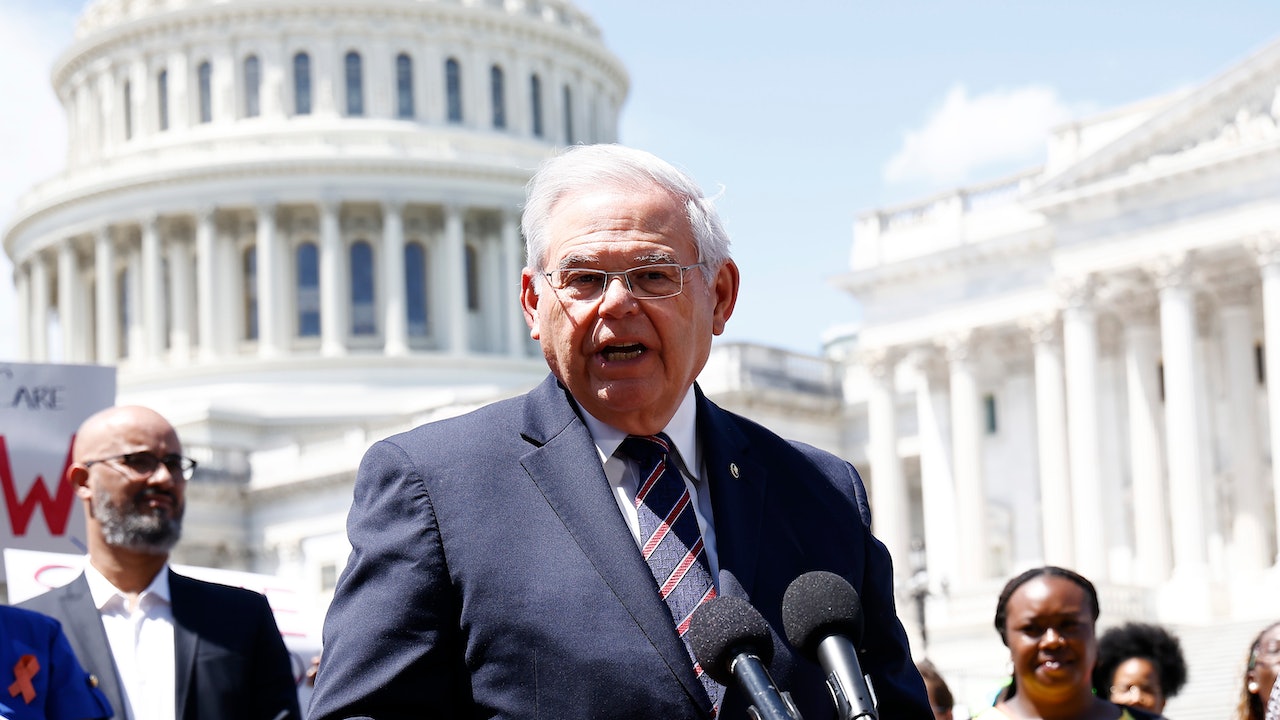The U.S. Senate Foreign Relations Committee passed the Taiwan Policy Act with 17 votes in favor and 5 votes against on September 14. The terms of which will expand the scope of U.S. arms sales to Taiwan, finance Taiwan’s purchase of arms, and strengthen U.S.-Taiwan relations. Move towards formalization, strengthen official-people exchanges between the United States and Taiwan, support Taiwan's participation in international organizations, and authorize the president to impose sanctions on China for China's actions against Taiwan.
The Taiwan Affairs Office of the State Council pointed out that the motion seriously violates the one-China principle, indicating that China is firmly opposed to it.
Taiwanese media "Shang Bao" quoted diplomatic sources as saying that during a meeting with U.S. Deputy Secretary of State Wendy Sherman on August 23, Chinese Ambassador to the U.S. Qin Gang said that if the "Taiwan Policy Act" is passed, Sino-U.S. relations will face disintegration. .
However, so far the Chinese Ministry of Foreign Affairs has not confirmed this statement.
Both practical and formal
The Taiwan Policy Act was introduced by Senate Foreign Affairs Committee Chairman Bob Menendez, a Democrat, and senior Republican Senator Lindsey Graham.
The terms are both practical and formal.
On a practical level, the policy law will amend the 1979 Taiwan Relations Act's provision for the sale of "defensive weapons" to Taiwan to "weapons that help deter the People's Liberation Army's offensive operations." , disguisedly expanded the scope of arms sales.
At the same time, the law also proposes to provide 4.5 billion US dollars in military aid to Taiwan within 4 years, and provide 2 billion US dollars in loans for the purchase of arms, and spend 100 million US dollars per year to build a war reserve (mainly ammunition) for Taiwan.
Qin Gang, Chinese Ambassador to the United States, was jointly interviewed by mainstream American media and Reuters in Washington on August 16.
(Chinese Embassy in United States)
The law also obliges the U.S. government to submit annual reports on war plans to defend Taiwan, establish the "Taiwan Security Assistance Initiative" to strengthen U.S.-Taiwan military relations and modernize the Taiwan military, and formulate detailed "Taiwan Security Assistance Initiatives" for China's entry into Taiwan. Whole-of-Government response plan.
The bill also requires the Ministry of Defense to conduct a comprehensive training program with Taiwan and establish a high-level military planning mechanism with Taiwan.
The US must also give priority to supplying surplus arms to Taiwan, speed up arms sales to Taiwan, and formulate strategies to counter China's information operations and economic pressure on Taiwan.
The bill also includes a series of detailed rules to specifically increase Taiwan's participation in international organizations and exchanges between the U.S. and Taiwan officials and people, and gives the U.S. president the opportunity to confirm that China is undermining Taiwan's stability (including destroying or overthrowing Taiwan's governing institutions, occupying Taiwan's land, and obstructing Taiwan's "Taiwanese"). sanction powers against China after territorial integrity, etc.).
At the formal level, the bill requires Washington to advance the "U.S.-Taiwan Trade and Investment Framework Agreement" and add Taiwan to the "Indo-Pacific Economic Framework" (IPEF).
Moreover, the U.S. government must use the Taiwan authorities as the representative of the American people, abolish the "outdated" designation of "Taiwan authorities", and abolish the U.S. restrictions on Taiwan personnel to display the "Republic of China (Taiwan) flag" and Guidelines for military unit emblems (called "sovereign symbols" in the bill) also require the State Department to negotiate the renaming of the "Taipei Economic and Cultural Representative Office" in Washington to the "Taiwan Representative Office."
At the same time, the bill also calls for the positioning of Taiwan as a "major non-NATO ally."
On August 3, Taipei, Pelosi went to the presidential palace to meet with Tsai Ing-wen.
(Taiwan Presidential Office via Associated Press)
Both for and against are "cross-party" views
After the Taiwan Policy Act passed the committee vote, Menendez issued a statement saying: "As Beijing continues to take diplomatic, political, military and economic action against Taiwan, today's strong bipartisan vote not only shows our commitment to the people of Taiwan Unwavering support also underscores the critical role the U.S. Congress must play in confronting these challenges."
Among them, "two parties" and "congress" are the key words.
While the bill was passed by a bipartisan majority of members of the Senate Foreign Affairs Committee, the opposition on the committee was also "bipartisan".
Republican Senator Rand Paul criticized the bill's move toward "strategic clarity" and may constitute a violation of the one-China policy, arguing that the United States should not radically change long-term policies at this time, regardless of possible consequences.
Democratic Senator Brian Schatz called it a "provocative decision" for Taiwan to display a "symbol of sovereignty" on official occasions.
It is worth noting that Democratic Senator Chris Murphy, who is rated as a "Biden ally" by the American media, also voted against it.
Democratic Senator Chris Murphy, named a "Biden ally" by the American media.
(Getty Images)
Previously, some media have reported that the Biden administration has expressed concerns about the symbolic or formal parts of the bill.
In fact, in the version adopted at this time, the clause that originally "ordered" the Secretary of State to change the name of the "Taipei Economic and Cultural Representative Office" to the "Taiwan Representative Office" has been weakened to oblige the Secretary of State to negotiate for this purpose; The clause that the Commissioner must be appointed by a vote of the Senate like ambassadors to foreign countries has also been deleted in the new edition.
Although the Taiwan Policy Act has now passed the committee, the decision on when it will be handed over to the Senate General Assembly for consideration is still in the hands of Senate Majority Leader Chuck Schumer, who has not set a timetable for this.
Potential integration into the National Defense Authorization Act
While the White House still has reservations about the "Taiwan Policy Act", Democrats who still control both houses of Congress at this moment probably will not "force the palace" with congressional votes, leaving Biden to face whether he should personally veto this China policy. The political dilemma of provocative bills.
On September 13, Pelosi and Schumer went to the White House to attend the celebration of the passage of the "Inflation Reduction Act".
(Getty Images)
The last possibility is that people in Congress hide the provisions of the Taiwan Policy Act in the National Defense Authorization Act, which must be passed in the new year and may be passed before the mid-term elections, and put it in a formal provision with "" The name "Taiwan Policy Act" has gone through a period of congressional procedures and attracted media attention. Similar to the above-mentioned clause on changing the name of Taiwan's chemical bureau, it has been incorporated into the "National Defense Authorization Act" in a greatly weakened version.
The earlier "Pelosi's visit to Taiwan" had two special features.
One is that it has the provocativeness towards China that the media has paid attention to, and the other is that it has no practical impact.
In contrast, the Taiwan Policy Act, which removes the formal provisions, will greatly strengthen the US-Taiwan military-diplomatic relationship, and threaten to impose sanctions on China's military reunification, with far-reaching practical implications.
In the future, even if it is adopted in a low-key manner by integrating into the International Authorization Law, it will be difficult to avoid a major backlash from China.
However, the practical provisions of the law have determined that this will not be a repeat of the symbolic "Pelosi's visit to Taiwan".
US Senate Foreign Affairs Committee Passes Taiwan Policy Act Taiwan Affairs Office of the State Council: The Taiwan Policy Act Will Not Succeed : Unswerving support for Taiwan's self-defense







